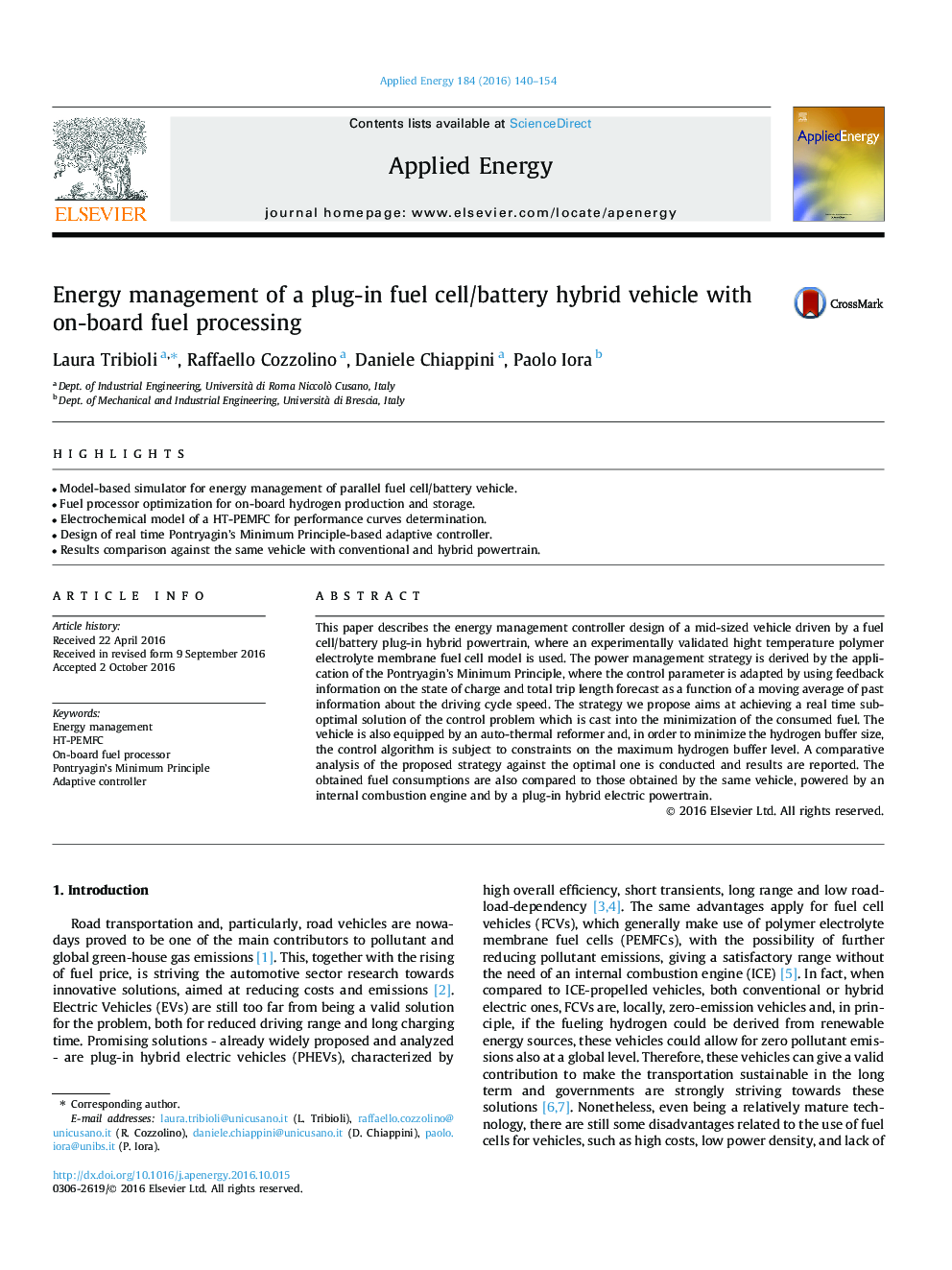| Article ID | Journal | Published Year | Pages | File Type |
|---|---|---|---|---|
| 4916859 | Applied Energy | 2016 | 15 Pages |
Abstract
This paper describes the energy management controller design of a mid-sized vehicle driven by a fuel cell/battery plug-in hybrid powertrain, where an experimentally validated hight temperature polymer electrolyte membrane fuel cell model is used. The power management strategy is derived by the application of the Pontryagin's Minimum Principle, where the control parameter is adapted by using feedback information on the state of charge and total trip length forecast as a function of a moving average of past information about the driving cycle speed. The strategy we propose aims at achieving a real time sub-optimal solution of the control problem which is cast into the minimization of the consumed fuel. The vehicle is also equipped by an auto-thermal reformer and, in order to minimize the hydrogen buffer size, the control algorithm is subject to constraints on the maximum hydrogen buffer level. A comparative analysis of the proposed strategy against the optimal one is conducted and results are reported. The obtained fuel consumptions are also compared to those obtained by the same vehicle, powered by an internal combustion engine and by a plug-in hybrid electric powertrain.
Related Topics
Physical Sciences and Engineering
Energy
Energy Engineering and Power Technology
Authors
Laura Tribioli, Raffaello Cozzolino, Daniele Chiappini, Paolo Iora,
